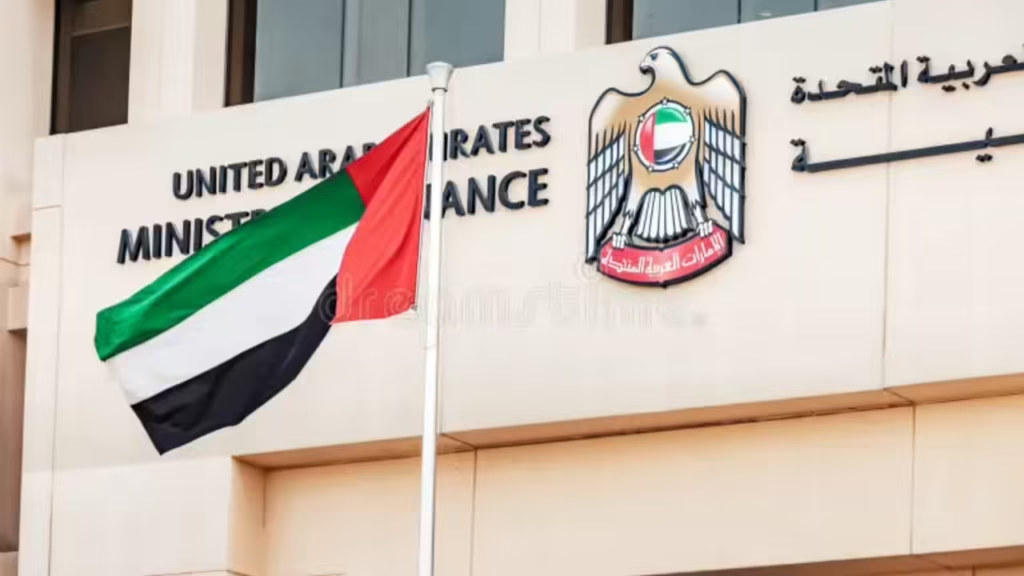The United Arab Emirates has always been known as one of the world’s most business-friendly destinations, attracting entrepreneurs, multinational companies, and investors from every corner of the globe. With the introduction of corporate tax in recent years, businesses have been adapting to new financial and regulatory landscapes. One of the most talked-about updates is the change in rules regarding partnerships under the UAE corporate tax framework. This reform is not just a technical shift in taxation but a significant milestone that affects how companies collaborate, share profits, and grow. Understanding these changes is essential for businesses of all sizes, whether they are small partnerships or multinational joint ventures.
Understanding the Basics of UAE Corporate Tax
To fully grasp the impact of the new partnership rules, it is important to start with the fundamentals. The UAE introduced a federal corporate tax regime as part of its strategy to align with international tax standards while maintaining its appeal as a competitive hub for trade and investment. Corporate tax applies to most business activities, excluding certain free zone entities and sectors that qualify for exemptions. The rate is designed to remain competitive globally, making the UAE an attractive choice for international expansion.
Partnerships, under the earlier regime, were often subject to different interpretations regarding how profits and losses should be taxed. The new rule change has streamlined these interpretations and clarified the obligations of partners, ensuring greater transparency and fairness.

What Has Changed in the Partnership Rules
Previously, partnerships faced uncertainty in how corporate tax applied to them. There was a lack of clarity about whether partnerships should be treated as separate taxable entities or if profits should pass through to individual partners. This created confusion for investors and companies looking to structure their business in the most tax-efficient way.

The new rule change has introduced a clearer framework. Partnerships, in many cases, are now treated under a transparent model, meaning the tax burden falls on the individual partners rather than the partnership itself. This allows income, expenses, and profits to flow through to the partners, who will then be taxed according to their share. In some cases, however, partnerships may opt or be required to be treated as separate taxable entities. The flexibility of this system gives businesses more control and adaptability in how they manage their tax obligations.

Why the Change Matters
This reform is not just about compliance; it is about creating a stable, predictable environment for business growth. Investors value certainty, and tax ambiguity has long been a point of concern for those engaging in partnerships in the region. By clarifying how partnerships are taxed, the UAE has made it easier for local and international companies to structure their ventures without fear of unexpected tax burdens.
Moreover, this change enhances the country’s reputation as a transparent and progressive economy. The global business community has increasingly demanded that tax systems align with international best practices. The UAE’s new rules bring it in line with these standards, while still maintaining its competitive edge as a low-tax environment.
Impact on Small and Medium Enterprises
For small and medium enterprises (SMEs), partnerships are often the preferred business model because of their simplicity and flexibility. The rule change means SMEs can now have a clear picture of how their profits will be taxed, allowing them to make better decisions about reinvestment, expansion, and partnership agreements.
Many SMEs operate on thin margins, and any unexpected tax implications can disrupt their growth trajectory. By offering clarity and a predictable tax framework, the UAE has given SMEs the confidence to plan long-term, form new collaborations, and attract outside investors who may have been hesitant in the past.

Effect on International Joint Ventures
Large multinational companies frequently enter the UAE market through joint ventures with local partners. These partnerships bring together international expertise and local knowledge, creating powerful collaborations. The new partnership tax rules make it easier for these joint ventures to calculate liabilities and distribute profits fairly.
This is especially important in industries such as construction, energy, real estate, and technology, where partnerships are common. Clear taxation rules reduce legal disputes, encourage trust between partners, and promote smoother business operations.
Attracting Global Investment
The UAE has always positioned itself as a gateway between East and West, offering world-class infrastructure, strategic location, and a highly skilled workforce. With the latest partnership tax reforms, the country strengthens its appeal to global investors. The new system demonstrates that the UAE is committed to keeping pace with international financial norms without compromising its pro-business environment.
For international investors, this means lower risk and higher predictability when entering partnerships in the UAE. This confidence encourages not only investment but also long-term commitments, as businesses see the UAE as a stable hub for regional expansion.
Opportunities for Professional Services
Another area positively impacted by the change is the professional services sector, including law firms, consultancy groups, and accountancy practices that often operate under partnership structures. The new rules provide these firms with clarity on how income will be treated, allowing them to restructure if necessary and align with best practices.
This is particularly beneficial for global service firms entering the UAE market. They can now operate under familiar partnership frameworks with confidence that their tax treatment is transparent and predictable.
The Road Ahead for Businesses
While the rule change is a step forward, businesses must also ensure they remain compliant by understanding their specific obligations. Each partnership is unique, and tax treatment can depend on the structure, agreements in place, and the nature of the business. Companies will need to invest in tax advisory services, legal consultations, and financial planning to maximize the benefits of the new system.
This change also emphasizes the importance of strong governance. Partnerships will need to ensure that their agreements are clear about profit distribution, capital contributions, and partner responsibilities to avoid disputes and ensure compliance.

How Businesses Can Adapt
To adapt effectively, companies should focus on a few key strategies:
- Review partnership agreements: Ensure contracts are updated to reflect how profits and losses will be taxed.
- Engage with advisors: Work with tax and legal professionals to understand the implications of the rule change.
- Educate partners: Make sure all partners understand their responsibilities and liabilities under the new framework.
- Plan for growth: Use the clarity provided by the new rules to expand confidently, attract investment, and form new partnerships.
Long-Term Vision of the UAE
The UAE has never been static when it comes to economic policy. Its long-term vision has always been centered on diversification, innovation, and global integration. The corporate tax reforms, including the partnership rule change, are part of this larger vision.
By aligning itself with global tax standards, the UAE ensures continued relevance in international markets, avoids being labeled as a tax haven, and positions itself as a responsible yet competitive player. Businesses operating in the UAE can expect further refinements in tax policies as the government continues to balance growth with global compliance.
Conclusion
The UAE corporate tax partnership rule change is more than just a technical amendment. It is a forward-thinking reform designed to bring clarity, attract investment, and strengthen the nation’s reputation as a global business hub. For SMEs, multinational joint ventures, professional services, and international investors, the new framework provides the certainty and flexibility needed to grow in a competitive world.
This reform is a testament to the UAE’s ability to adapt to changing global landscapes while ensuring that its business environment remains vibrant, transparent, and future-ready. The road ahead will undoubtedly bring new opportunities for those who understand and embrace the changes.
Do follow UAE Stories on Instagram















